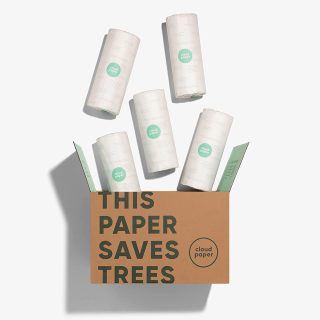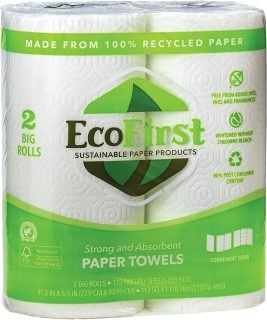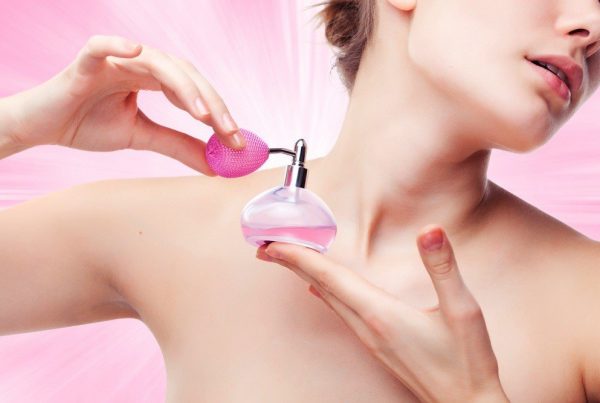We can all agree that having a good skincare routine is important for healthy, vibrant skin. We can talk about the importance of moisturizers, and what serums you should be using for days on end. However, there’s one thing that seems to be left out of the skincare conversation quite often; what you dry your face with. This can have just as much of an impact on your skin as the products you’re using.
Although it is the social norm to use a towel to wipe your face, this may not be the best bet for your skin. This has led to the rise of using disposable paper towels instead. However, this is a topic that has been met with much debate for various reasons, from environmental impact to harshness on the skin. In this story, we take a look at why using paper towels, a popular alternative for your skin is advised, as opposed to towels and face cloths.
Face Cloths: A Petri Dish of Bacteria
According to a study by the University of Arizona, towels are the most germ-infested household object. We keep them in constant dampness in our bathroom, leading to them retaining moisture for long periods of time. These towels collect dead skin cells and oils from our faces, then proceed to hang them on our towel racks, collecting dust and dirt. This makes them a hospitable environment for various bacteria.
According to Dr. Michael Barnish, Aesthetic Doctor, “bacteria multiply remarkably fast and usually within 20–30 minutes.” So we can only imagine how much bacteria are on them when you do your next skin cleansing routine. “This bacteria can easily be introduced into your cleansing routine”, leading to the following effects:
- Blisters
- Increased acne
- Dark, necrotic-appearing skin (discolored and painful skin)
- More serious infections, including fungal and parasitic infections
The Clean Towel Method
This technique is pretty self-explanatory. It equates to using a new towel every single time you wash your face, as advised by dermatologists. The upside of this method is that there is no bacteria and dirt build-up waiting to be smeared on your clean face. However, it’s not the most cost-effective, or environmentally friendly option in the long run, especially if we consider the process of washing these towels.
The Process of Washing
Many of the harmful organisms which build up on towels thrive at high temperatures and are able to stay alive even through a washing cycle of 40 °C. While this may be better for the environment, it doesn’t do much for bacteria. In fact, a study found that laundry washed at 40 °C only contained 14% fewer germs than unwashed laundry. So even though the towel looks clean once it comes out of the machine, it doesn’t mean the bacteria is gone.
Over-Exfoliation
Towels, no matter how soft, can be a bit too harsh for your skin. Using a towel can cause unnecessary friction and irritation to the skin, and this can be very problematic, especially if you have sensitive skin. If used too often, it can function as over-exfoliation. Exfoliation may be a crucial part of a healthy skin-care regimen, but it is possible to overdo it, which negatively impacts your skin in the following ways:
- Increased acne
- Inflammation
- Dry skin, leading to flaking and peeling
- Increased sun sensitivity
- Hyperpigmentation
- A thick build-up of dead skin cells
- The formation of wrinkles
According to Dr. Banish, this results in “poorer skin health and appearance.”
So What Are The Benefits of Paper Towels?
Paper towels allow you to adhere to the Clean Towel Method since you are always using a new, clean sheet. This ensures that there is no transfer of bacteria, thus meaning that your skin remains clean and bacteria-free after your cleansing routine.
Also, paper towels are completely dry, and only exposed to moisture when you wipe your skin. This ensures that they do not act as a breeding ground for bacteria, and the collection of dirt.
Paper towels are also very absorbent, so they allow you to pat dry your skin, but still effectively dry your skin, unlike towels, which aren’t as effective and sometimes require vigorous wiping, which can be detrimental to the skin.
The Environmental Downside – And the Solution
Unfortunately, most paper towels aren’t recyclable. This can pose a risk to the environment, especially since they cannot be reused. However, there are numerous recyclable (or already recycled) paper towel variations available on the market, ensuring that both your skin and the environment are taken care of. These include:
You should also be cautious of the ingredients used in the paper towels. Avoid ingredients such as bleach and chlorine, and opt for undyed, bright white paper towels as opposed to dyed ones.
Ensuring Thorough Skin Cleansing
We need to be very conscious of our skincare, beyond the products we use. From the pillowcases we use, to what we use to dry our skin, these can all have an impact on it and its health. It’s no good to go through an extensive cleansing routine, just to put a range of bacteria back on your face and seal it in with your moisturizing products. This takes away from the efficiency of these products and leaves your skin looking dull, and speeds up the onset of aging, which no one wants.
References
- Abedsoltan, H., 2022. Wetting of Paper Towels: A Method to Determine the Two‐Dimensional Absorption Capacity. Chemical Engineering & Technology, 45(11), pp.2096-2102.
- Zhang, W., Zheng, N., Wang, S., Sun, S., An, Q., Li, X., Li, Z., Ji, Y., Li, Y. and Pan, J., 2023. Characteristics and health risks of population exposure to phthalates via the use of face towels. Journal of Environmental Sciences, 130, pp.1-13.





![women [longevity live]](https://longevitylive.com/wp-content/uploads/2020/01/photo-of-women-walking-down-the-street-1116984-100x100.jpg)










